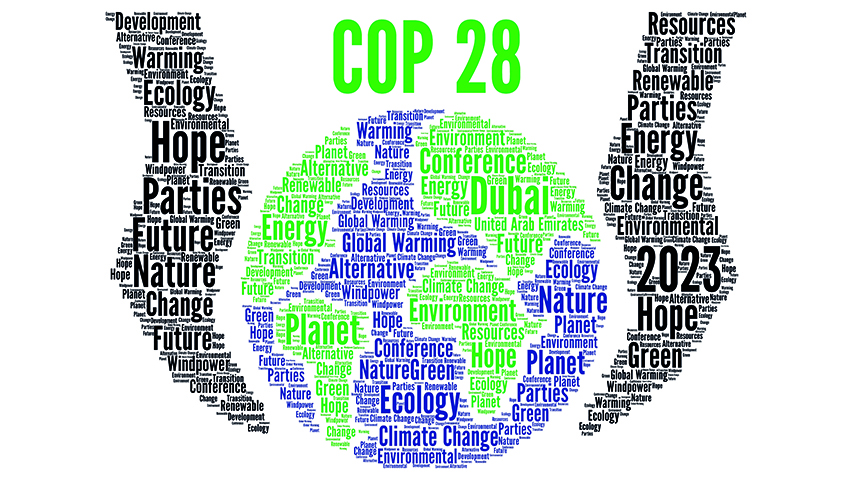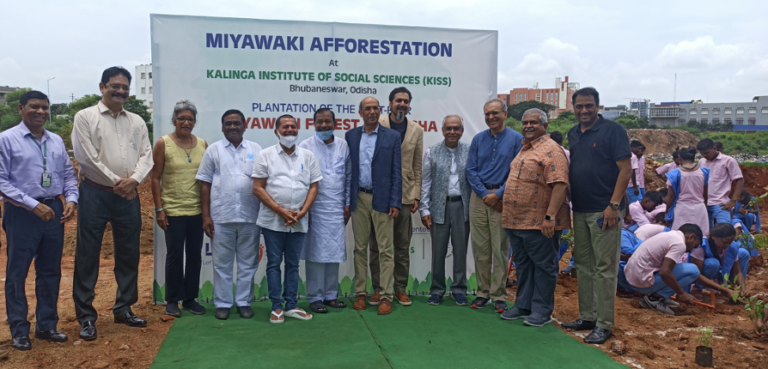The world eagerly awaits COP28, the upcoming 28th UNFCCC Conference of the Parties, as world leaders prepare to deliver significant progress and solidify strategies for transformative climate action. In just five months, COP28 could become the most critical climate conference since the Paris Agreement. The urgency of addressing the climate crisis has been further highlighted by the release of the Intergovernmental Panel on Climate Change’s (IPCC) sixth assessment report in March. This report emphatically states that there is a rapidly closing window of opportunity to secure a livable future, underscoring the need for immediate and decisive action. Unfortunately, our current rate of emission reduction efforts indicates that global warming will most likely exceed the critical threshold of 1.5 degrees Celsius before 2030. As preparations for COP28 intensify, it is imperative to generate a credible pathway to more effective and ambitious climate actions compared to previous years’ discussions.
COP28 will mark a significant milestone as it concludes the Global Stocktake, the first assessment of the Paris Agreement’s effectiveness in curbing emissions. The Global Stocktake evaluates various aspects, including protecting people from climate impacts, limiting global warming below 1.5 degrees Celsius, and mobilizing finance for climate action. After five years of comprehensive evaluation, the Global Stocktake enters its third phase at COP28, where world leaders will hear the “climate verdict” and discuss the existing gaps in achieving the Paris Agreement’s objectives. This crucial phase will involve negotiations to determine the necessary steps for bringing climate action back on track. However, the recent IPCC AR6 report has provided a glimpse of our poor performance in meeting the Paris Agreement’s goals, making COP28’s task even more challenging.
The UN Climate Change Conference held in Bonn this June added to the complexity leading up to COP28. The conference aimed to lay the groundwork, but it faced difficulties due to disagreements between developed and developing countries. Past and present challenges related to phasing out fossil fuels and financing climate efforts remained unresolved, leading to a lack of consensus on a final agenda. While progress was made on critical issues during the Bonn meeting, the question of how countries will finance their climate action policies remained vague despite ten days of intensive discussions, potentially setting the stage for more political conflicts at COP28.
In light of the dissatisfaction with climate finance decisions during the Bonn Climate Conference, discussions on climate finance are intensifying in the lead-up to COP28. One significant event was the Paris Summit for a New Global Financing Pact, hosted by France in June this year. During this Summit, world leaders wereexpected to develop a new global financial system aimed at addressing poverty, curbing planet-heating emissions, and protecting nature. The summit focused on financing green infrastructure and mobilizing capital for countries vulnerable to extreme weather events. The timing of this Summit was crucial for the Global South, as many countries in this region are burdened by overwhelming debt, hindering their growth and perpetuating poverty while undermining their capacity to address climate change impacts. For wealthy nations such as Europe and the US, as well as financial institutions like the IMF and World Bank, the Summit offered an opportunity to increase investment and allocate more funds to support low-income countries and those most susceptible to climate change. French President Emmanuel Macron expressed optimism that the long-awaited pledge to deliver $100 billion a year in climate finance to poorer nations would finally be fulfilled this year. While the Paris summit did not possess the authority to make binding decisions, it gave strong political momentum to critical climate issues, including debt relief, which will continue to be discussed at COP28.
To build further momentum ahead of COP28 and conclude the first Global Stocktake in a regional context, the annual Four Regional Climate Weeks will be held in September and October. These events include Africa Climate Week, Middle East and North Africa Climate Week, Latin America and Caribbean Climate Week, and Asia-Pacific Climate Week. Regional Climate Weeks bring together diverse stakeholders for regional collaboration on climate change and provide opportunities to build partnerships, collaboration, and solutions between governments, the private and public sectors, organizations, youth groups, and civil society on climate action projects. These events, organized by the United Nations Framework Convention on Climate Change (UNFCCC) in close cooperation with global partners like UNDP, UNEP, the World Bank, and regional partners, will lay the groundwork for COP28.
As numerous climate talks, discussions, summits, and negotiations continue in preparation for COP28 in November, there is an urgent need for world leaders, organizations, and public and private sectors to accelerate their climate actions and decisions. COP28 presents a transformative opportunity to secure a livable future in the face of the rapidly narrowing window of opportunity posed by the climate crisis. The success of COP28 depends on the collective determination and ambition of all stakeholders to address the pressing challenge of climate change and pave the way for a sustainable future for generations to come.



